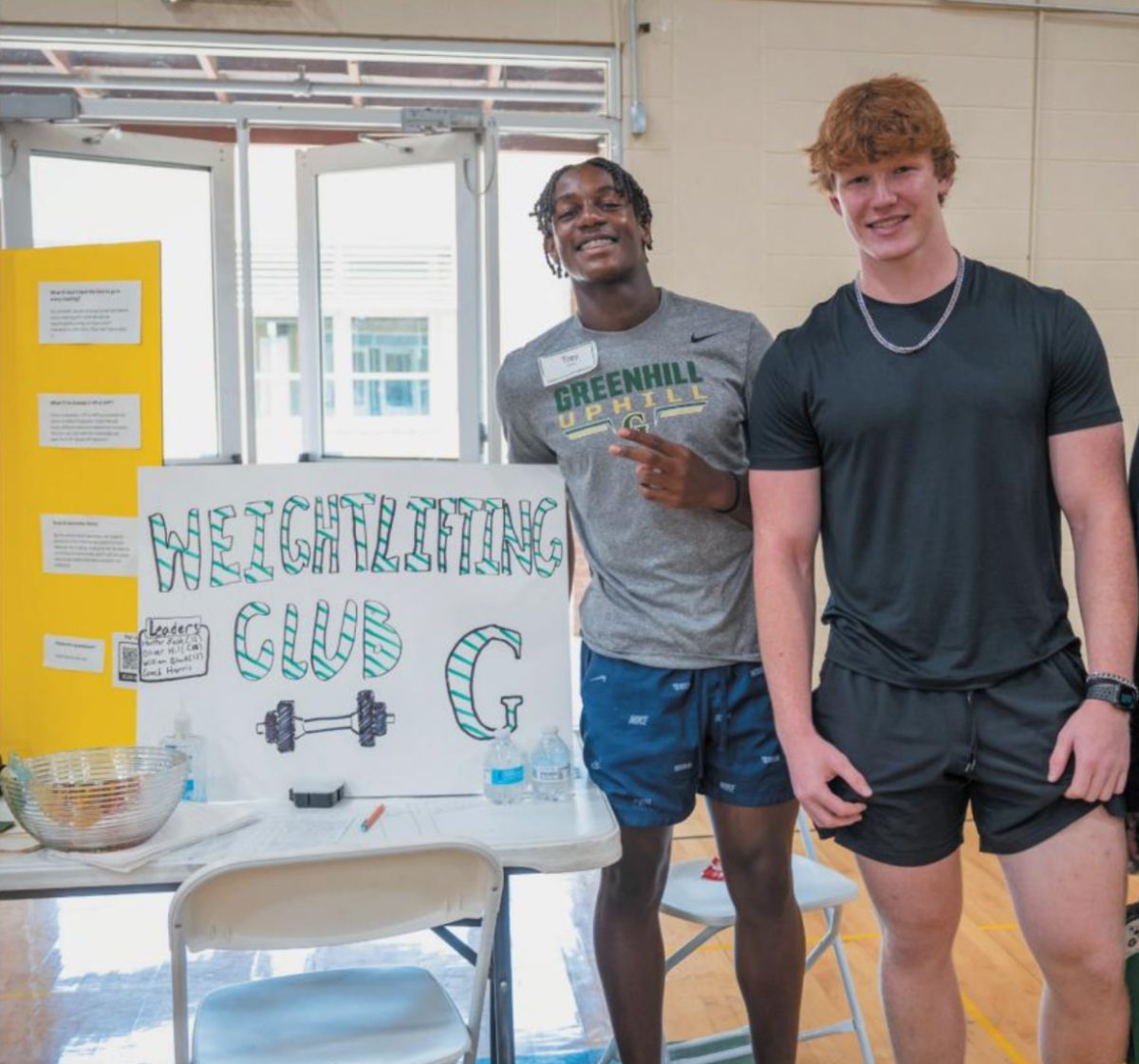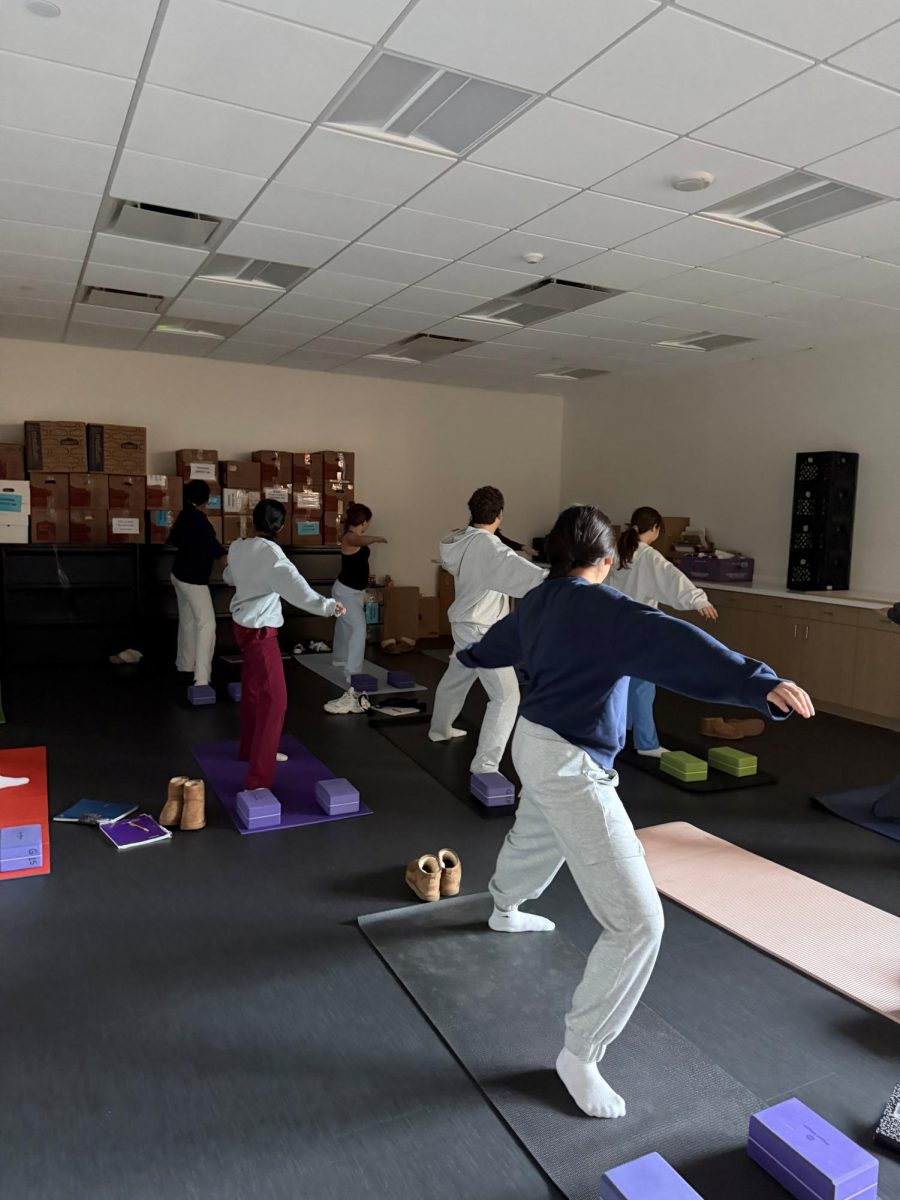Over the past few years, Upper School administrators and faculty have tried schedule tweaks and other changes to create a more robust club environment.
The results have been mixed, in the view of many students.
Now, new Student Activities Administrator Kira Rivera has initiated more sweeping changes to govern the creation and running of clubs this year.
Under the new structure, students who want to start or continue a club must complete a comprehensive application that outlines the group’s purpose and its benefit to the Greenhill community. After reviewing the application with a faculty committee, Rivera either approves the club, recommends a merger with another club, or rejects the proposal.
“I wanted to help the students who had good ideas and make sure that they could create a club that is meaningful, and that people actually want to participate in,” Rivera said.
These updated procedures stem from feedback Rivera gathered during summer meetings, where the lack of student participation and organization within clubs emerged as major concerns.
“I heard that sometimes clubs would meet but there wasn’t anyone there and nothing was happening,” Rivera said.
Although the 2022-2023 school year introduced a new Upper School schedule with built-in club times, many students use these breaks to relax or catch up on homework instead of attending club meetings.
“I know that clubs have not been as effective as they can be, but I do not think that was because of a lack of regulation or oversight from teachers,” said senior Neha Bachu, a leader of the Political Action Club. “I think the main issue these past few years has been that students are really busy and do not want to use their free time to attend a club meeting.”
Rivera, however, hopes the new structure she has implemented will address this issue and make clubs more engaging.
“I want to make clubs something worth going to,” she said.
Creating Structure
At the start of the year, Rivera required club leaders to fill out a year-long action plan. Within the plan, leaders had to detail their goals for the year and how they will achieve them. Leaders also had to schedule and create an agenda for at least seven meeting times for the school year.
“It’s not that I think that leaders don’t want to plan, it may just be that they don’t know how to plan,” Rivera said. “I wanted to help those students who had good ideas actually execute those ideas.”
Some students say they felt that aspects of the plan were not needed. For the Political Action Club specifically, Bachu says it was difficult to plan meetings ahead of time, due to the unpredictable nature of this election cycle.
“I think having to plan all meetings so far in advance is a little unnecessary because obviously things are going to be constantly changing,” said Bachu.
Rivera, however, maintains that this change is vital to ensure that clubs are purposeful and organized.
“I am not trying to micromanage students,” she said. “I just wanted to provide a platform for kids to write their ideas down and to come up with a plan for what they are inviting people into.”
In addition, all club leaders, as well as board members, affinity group leaders, student tutors, Student Council representatives and Hill Guides were required to sign the new Student Code of Conduct at the start of the year. This ensures that all student leaders abide by the honor code and represent the school in a positive manner.
Club leaders and their sponsors were also required to attend three meetings in the first semester. At the first meeting, they were informed about the importance of their responsibilities as leaders. At the second meeting, they signed the contract. Finally, at the last meeting, leaders discussed fundraising.
“Clubs can be as fun or as serious as students want them to be as long as the club is actually doing something,” Rivera said. “It’s been a process of working with people who have been here a while and seeing what needs to change and what can be helpful in the long run.”
Student Opinions
There have been mixed feelings within the student body regarding the recent changes. One key concern is over club mergers, something that has been recently dubbed “club collaborations.”
Senior Megan Cleary is a co-president of the club Hornet Mental Health. Following the application process, her club was merged with a club called Peace of Mind.
“Merging our clubs was frustrating for us,” Cleary said. “They were two separate clubs for a reason. I think merging clubs is taking away some of our freedom.”
Senior Kendall Poglitsch, a founder of Peace of Mind, decided to dissolve her club following the merger. Like Cleary, she felt that the clubs were not similar.
“It was frustrating to me because I didn’t want the club that we were merged with to have to change their entire plan to accommodate us as well,” said
Junior Valentina Casas-Sayek’s club for blood cancer awareness was combined with the Leukemia Lymphoma Society. In contrast, she had a more positive experience with the change.
“At first we thought it wouldn’t work out since we are two different organizations,” Casas-Sayek said. “But we found a way to make it work in a way that would benefit both of us.”
Another concern raised by club leaders is the added advanced structure required for clubs.
“It makes it more rigid on how we run things, which can be hard because every club is so different,” said senior Prabath Girish, leader of Youth in Government. “It has made it harder for some clubs to have their own individual ways of functioning, which is both a good thing and a bad thing.”
Despite some hardships, many students see the changes as an opportunity for growth. For example, Girish has found it a lot easier to communicate with adults about questions or concerns this year.
“We were able to get in contact with Mrs. Rivera really early and she was able to help us,” Girish said. “Also, now [all clubs] have a budget which, to my knowledge, was not the case last year. This is really helpful in terms of making competitions happen.”
Junior Sloan Stagen is a leader of the newly formed Entrepreneurship Club. She believes that these changes will ultimately benefit the Greenhill community.
“I feel like it forces clubs to actually follow their mission and purpose,” Stagen said. “I think last year there were a lot of clubs that didn’t meet at all. I think this change is positive because clubs can do what they are intended to do.”
Girish agrees.
“In the long run, I think these changes will help make clubs feel a lot more structured,” Girish said. “Overall, this will be a good thing, even though right now it is a hassle.”




